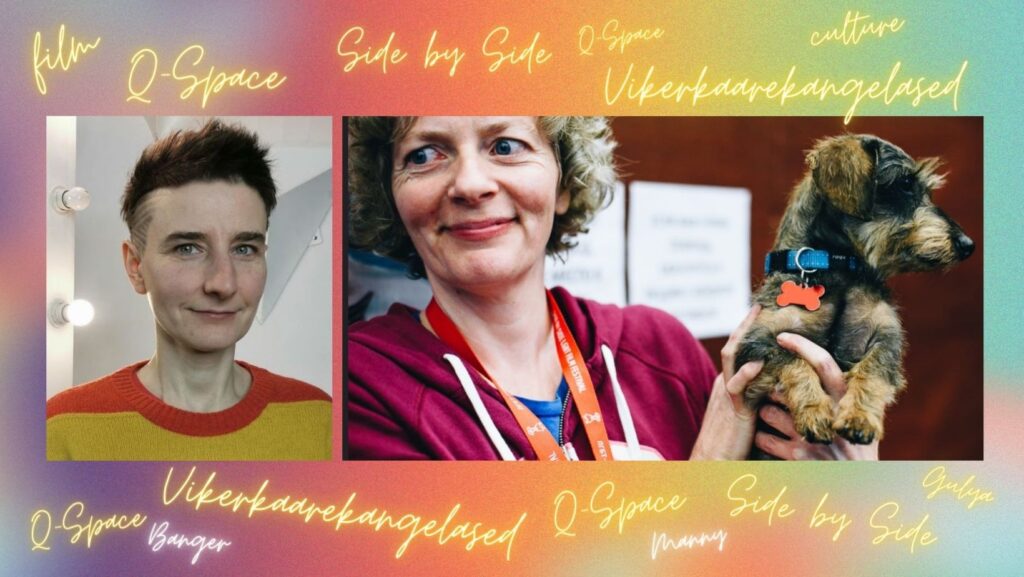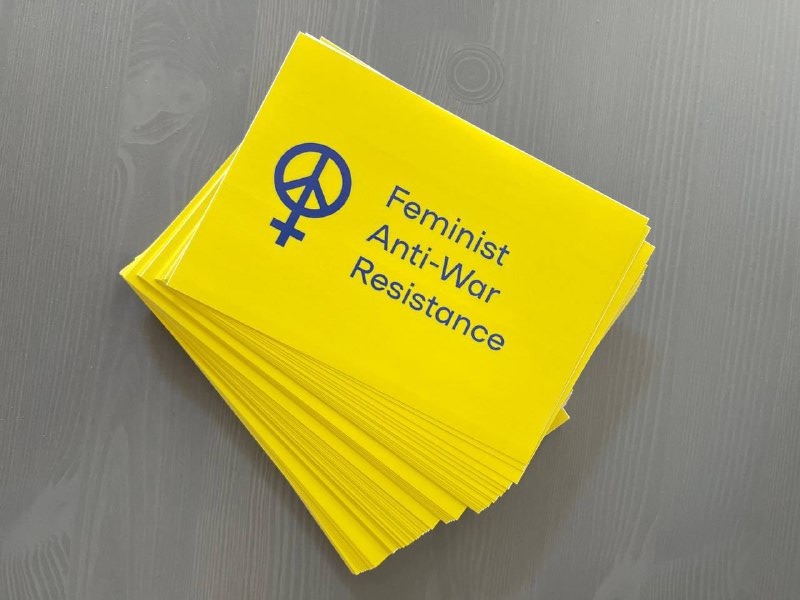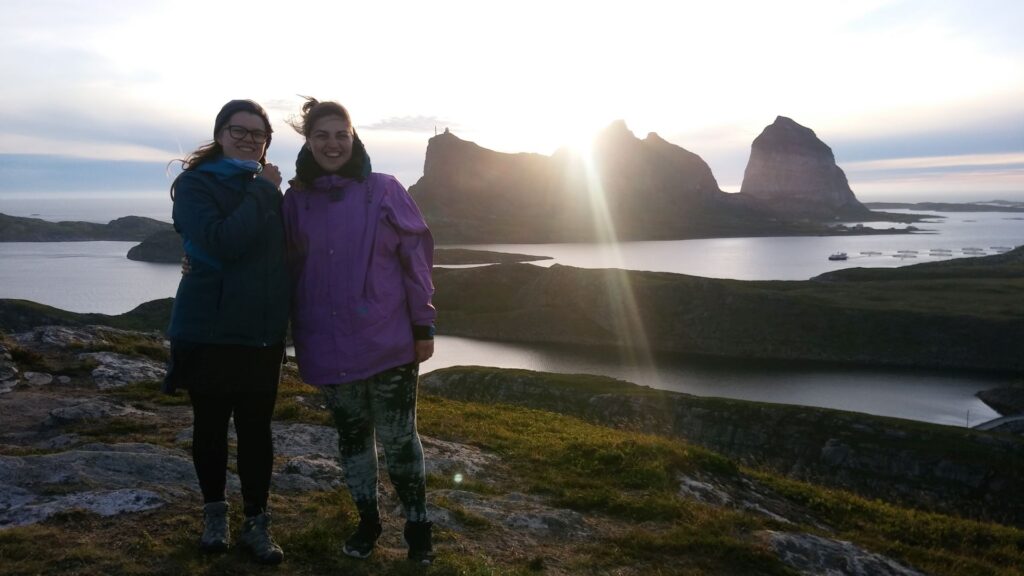How to keep an activist healthy?
I feel that more people have started to actively speak up and get involved with social justice topics in Estonia, especially in recent years. New faces have arrived at the Feministeerium community space, and we have gladly supported their ideas to organise events, protests and meetings. Activists give a lot of time, energy and enthusiasm to solve difficult problems, but as the issues are complex, seeing the results of one’s action, and progress in general, takes time. Frequent fallbacks cause powerlessness, stress and influence mental health negatively. Burnout due to tiredness, lack of support and internal conflicts in the group is a common experience amongst activists.
A year ago, a group of like-minded people and I decided to create something akin to an activist well-being programme. I decided to coordinate a programme of hikes and wellbeing events with the aim to improve activists mental health awareness and to learn and practise self-care. I initiated these gatherings because I believed that the feeling of solidarity, relaxing together and supportive relationships are essential for a self-caring activist. Estonian social movements need a healthier and happier activist, as this helps people to work with their causes in a more sustainable way over a longer period of time.
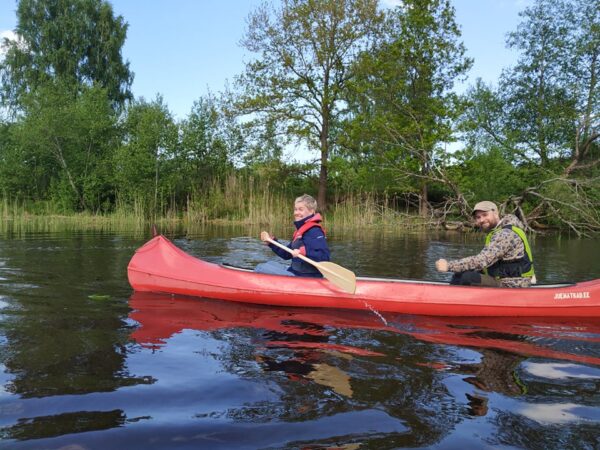
Nele overcame her fears during the canoe trip on Emajõe, spring 2021.
Organising with me were five people who are active at Feministeerium, LGBT Union, Estonian Youth Mental Health Movement or in other grassroots groups. We invited activists and their close ones from feminist, climate justice, mental health, animal rights, LGBT+ and other human rights and environmental protection movements.
During the year, we hiked around 60 kilometres in Nelijärve, Tõravere, Pirita and Valgesoo forests, went birdwatching in Paljassaare and canoed on Emajõe, walked at the Paldiski windy seashore, as well as in Tartu city greenery and at Astangu former military areas. On top of that, we organised three seminars, where we discussed the connections between stress and eating, gave tips for self-care and shared our experiences of healing from burnout.

Astangu hike participants crossing water in Tallinn, autumn 2021
The project has ended now and it is time to draw conclusions
The feedback we got from one-on-one conversations and the feedback forms emphasized the value of a relaxed environment and good company. The realisation that activists are faced with very similar problems, such as feelings of loneliness, increased the feeling of resilience and positivity. One participant described this as follows: ”I was reminded that the problems we discussed are not abstract in their repetitiveness, but that real people fight with these all the time.”
Spending time together in nature generated positive emotions, gave an opportunity to switch off from everyday life for a moment and gain new experiences and connections – all this in a safe environment and together with people who share similar values to yourself. It felt good to be with the kind of people who didn’t need an explanation of why fighting inequality is important.
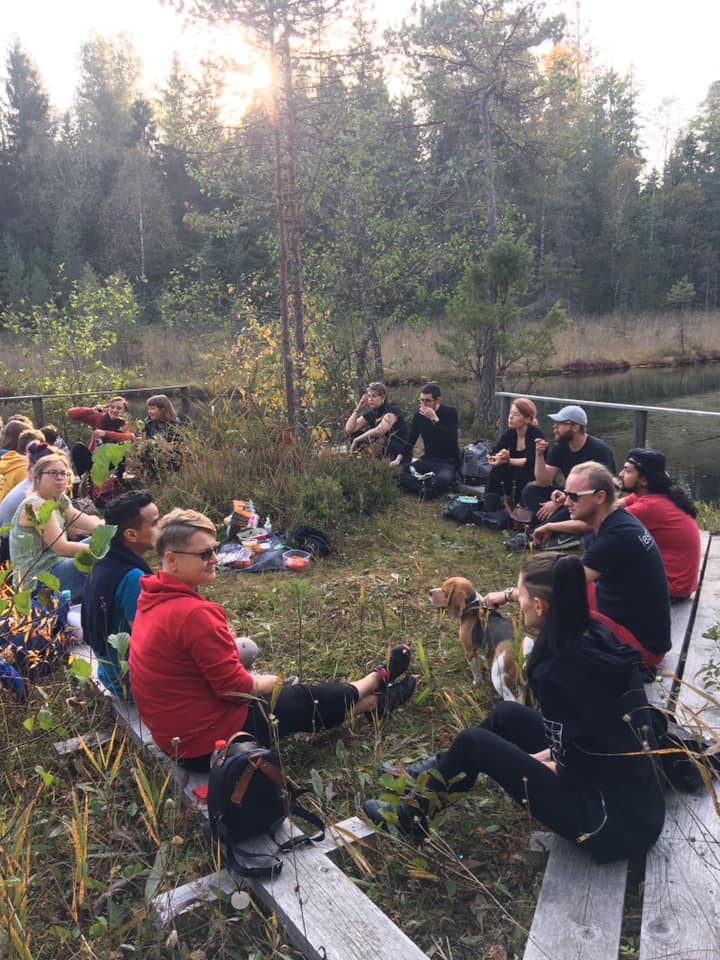
Picnic in Nelijärjve hike, Autumn of 2020
We will share some of the most important self-care tips with you too:
- Go to nature! Being in nature regularly helps to unwind the body and bring the stress level down.
- Take breaks and rest, before you start feeling like you have to give up activism altogether. If you don’t have the energy, don’t force yourself. A hobby that can take your mind elsewhere, could be helpful so that you can return refreshed. Some members of the group have tried archery, embroidery, gardening, making collages or painting pebbles found at the beach with leftover nail varnish.
- Don’t be too hard on yourself as this enables getting stuck on the stress wheel. One participant described it like this: “It feels like a lot of people are burdened by the constant need to prove themselves to others – be it a need from childhood which gets stronger with activism or something else. Because of this, people take on too many responsibilities and get stressed when it’s not really possible to fulfil all of these, thus ending up at the lowest circle of activist hell. A good tip is to set yourself realistic and achievable short-term goals. This way you can enjoy your work more.
- When you can feel sadness and depression creeping close, call a trusted friend as soon as possible and have a conversation about anything: either the particular worry or any other everyday thing. The aim is to restore the feeling that you have other people around you and you are not alone.
- Finally, how to evaluate if the state of your mental health is worrying enough to contact a specialist for help? In the words of one participant, it’s a good idea to evaluate it like this: “Think about what would you say to a friend, who has described themselves in such a mental state where you are right now. After this, I did contact psychologists and got support, which I found very helpful.”
The hikes and seminars have come to an end for this year but if you would like to organise together with us next year and lead us to your favourite hiking path, then get in touch.
The meetings were supported by the European Solidarity Corps local solidarity projects that are operated by the Archimedes Foundation Youth Agency.



